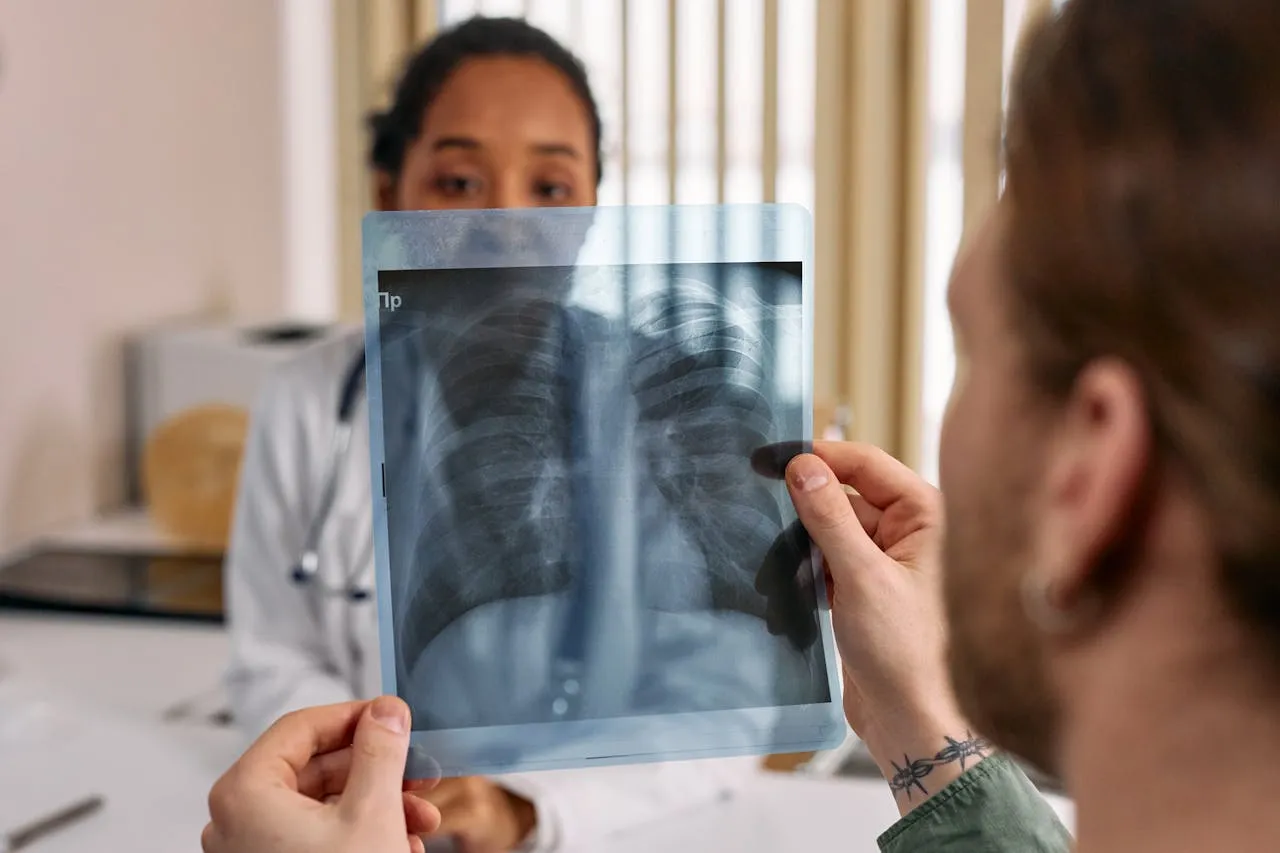
bioAffinity Technologies Detects Second Primary Lung Cancer Using CyPath® Lung
bioAffinity Technologies, Inc. has recently released a compelling case study in which its CyPath® Lung test played a crucial role in detecting a second primary lung cancer in a high-risk patient with a history of stage 1A non-small cell lung cancer (NSCLC). The patient, who had undergone successful surgery in 2023, benefited from the real-time insights provided by CyPath® Lung, which were pivotal in identifying a previously undetected cancer. This case highlights the potential of the CyPath® Lung test to make a significant impact on early lung cancer detection and patient outcomes.
Early Detection: CyPath® Lung’s Role in Identifying Second Cancer
The CyPath® Lung test is designed to offer valuable diagnostic insights, particularly when dealing with small, indeterminate nodules that might not immediately warrant invasive procedures. Maria Zannes, President and CEO of bioAffinity Technologies, emphasized how CyPath® Lung enabled the early detection of a second primary lung cancer, which could have been overlooked using traditional follow-up protocols.
“This underscores the test’s potential to significantly impact patient outcomes by enabling early and accurate detection, especially when imaging reveals small indeterminate nodules that would not immediately lead to invasive diagnostic procedures,” Zannes said. CyPath® Lung provided real-time information that allowed doctors to address the issue promptly and accurately, ensuring a timely intervention for the second cancer.
Patient Background: High-Risk Factors and Previous Treatment
The patient in question is a 72-year-old with an extensive smoking history of 50 pack-years, combined with chronic obstructive pulmonary disease (COPD) and chronic respiratory failure. She had previously undergone a wedge resection to remove a tumor caused by non-small cell lung cancer (NSCLC). Following surgery, the patient was monitored with regular computed tomography (CT) scans as part of postoperative surveillance.
During these follow-up scans, subtle changes in the scar tissue raised concerns about a potential recurrence of the initial cancer. However, these changes were minor, making it difficult to distinguish between normal postoperative healing and a possible return of the malignancy. Traditional follow-up methods, such as serum markers and PET scans, were either contraindicated or inconclusive, especially for smaller nodules.
Diagnostic Dilemma: The Challenge of Post-Op Surveillance
“Subtle changes post-op are common and present a diagnostic dilemma,” explained Dr. Gordon H. Downie, MD, PhD, Director of the Pulmonary Nodule Clinic at Titus Regional Medical Center in Mount Pleasant, Texas. “Due to her previous cancer diagnosis, serum markers were contra-indicated, and a PET scan may be inconclusive on smaller nodules.” With these limitations in mind, Dr. Downie turned to CyPath® Lung, which provided a positive result for potential cancer.
“The CyPath® result came back as likely cancer, which told me in real-time that there were new malignant cells in her lungs,” Dr. Downie said. The CyPath® Lung test provided actionable data that prompted further investigation, ultimately leading to the identification of a second primary cancer, distinct from the original NSCLC.
Prompt Action: PET Scan and Further Testing
Encouraged by the positive CyPath® Lung result, Dr. Downie ordered a PET scan, which revealed significant uptake in the mediastinum and right hilum, along with the discovery of a new nodule in the right upper lung. This raised further suspicion of malignancy and prompted the medical team to proceed with additional diagnostic tests.
Subsequent bronchoscopy confirmed the diagnosis of small cell carcinoma (SCC), which was separate from the patient’s initial diagnosis of NSCLC. Early detection of this second primary cancer allowed the medical team to begin timely and appropriate treatment, increasing the chances of successful intervention and improving the patient’s prognosis.
CyPath® Lung’s Impact on Patient Outcomes and Healthcare Costs
The study highlights the practical benefits of CyPath® Lung not only for early detection but also in improving overall patient outcomes. Maria Zannes noted, “Each study illustrates how CyPath® Lung provides actionable information to the physician, who can then move forward in the best interest of each patient.” This ability to detect cancer earlier and with greater accuracy can lead to more effective treatment, potentially lowering the long-term healthcare costs associated with delayed diagnoses and more invasive procedures.
The broader adoption of CyPath® Lung could also have a significant financial impact. A study published in the Journal of Health Economics Outcomes and Research examined the potential savings associated with adding CyPath® Lung to the standard of care for patients with positive lung cancer screenings. The study, conducted by pulmonologists Michael Morris, MD, and Sheila Habib, MD, found that for Medicare patients, CyPath® Lung could lead to an average cost savings of $2,773 per patient, totaling an estimated $379 million in savings for 2022.
For private-payer patients, the savings were even more substantial. The study estimated that the use of CyPath® Lung could save an average of $6,460 per patient, leading to a total savings of $895 million if all individuals screened in 2022 were covered by private insurance. The savings stem from reduced follow-up diagnostic assessments, fewer expensive procedures, and the avoidance of procedure-related complications.
The Future of Lung Cancer Detection: Clinical and Financial Benefits
The positive results from this study are part of a growing body of evidence that supports the integration of CyPath® Lung into routine clinical practice for high-risk patients. By providing earlier, more accurate diagnostic insights, CyPath® Lung has the potential to improve patient outcomes and reduce the need for costly and invasive diagnostic procedures.
“As we continue to see both clinical and financial benefits with the broader adoption of CyPath® Lung, it becomes increasingly clear that this test can significantly contribute to better outcomes for lung cancer patients,” said Zannes. By offering a non-invasive, more efficient means of detecting lung cancer, CyPath® Lung may help optimize patient care and reduce the economic burden on healthcare systems.
Conclusion: A Valuable Tool for Early Cancer Detection
bioAffinity Technologies’ CyPath® Lung has shown immense promise in the early detection of lung cancer, particularly in where traditional methods may fall short. The study of the 72-year-old patient with a history of NSCLC underscores the value of this test in identifying second primary cancers that could otherwise go undetected. With its ability to provide real-time diagnostic information, CyPath® Lung plays a critical role in enabling timely interventions and improving patient outcomes. As its adoption increases, CyPath® Lung has the potential to revolutionize the way lung cancer is diagnosed and managed, benefiting both patients and the healthcare system at large.
About CyPath® Lung
CyPath® Lung uses proprietary advanced flow cytometry and artificial intelligence (AI) to identify cell populations in patient sputum that indicate malignancy. Automated data analysis helps determine if cancer is present or if the patient is cancer-free. CyPath® Lung incorporates a fluorescent porphyrin that is preferentially taken up by cancer and cancer-related cells. Clinical study results demonstrated that CyPath® Lung had 92% sensitivity, 87% specificity and 88% accuracy in detecting lung cancer in patients at high risk for the disease who had small lung nodules less than 20 millimeters. Diagnosing and treating early-stage lung cancer can improve outcomes and increase patient survival. For more information, visit www.cypathlung.com.
About bioAffinity Technologies, Inc.
bioAffinity Technologies, Inc. addresses the need for noninvasive diagnosis of early-stage cancer and other diseases of the lung and broad-spectrum cancer treatments. The Company’s first product, CyPath® Lung, is a noninvasive test that has shown high sensitivity, specificity and accuracy for the detection of early-stage lung cancer. CyPath® Lung is marketed as a Laboratory Developed Test (LDT) by Precision Pathology Laboratory Services, a subsidiary of bioAffinity Technologies. For more information, visit www.bioaffinitytech.com.







